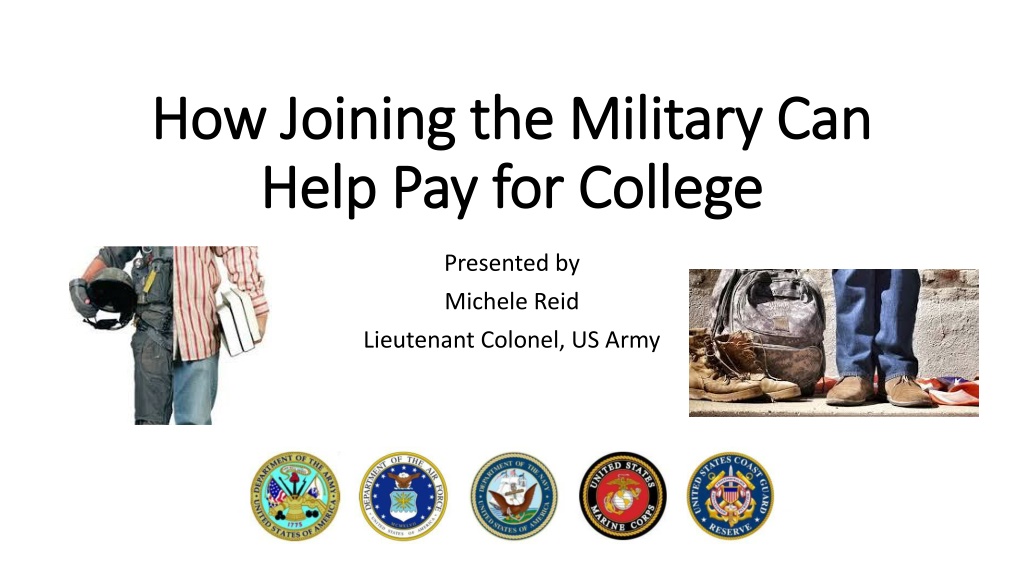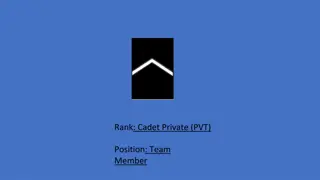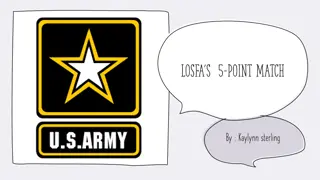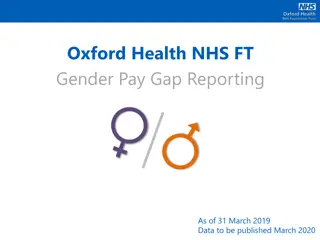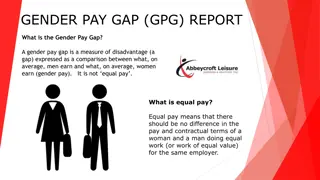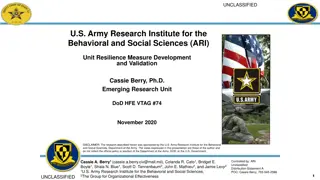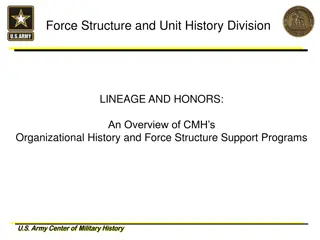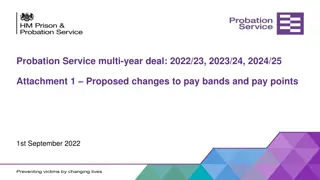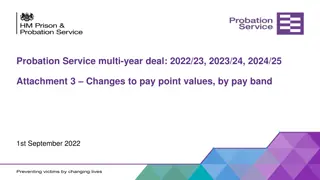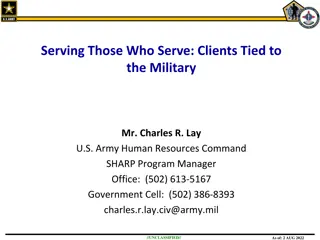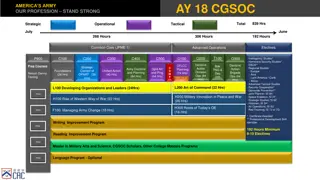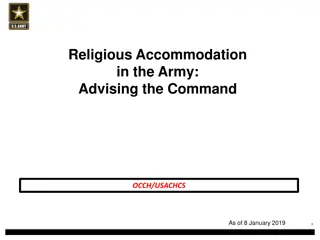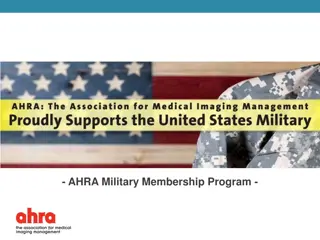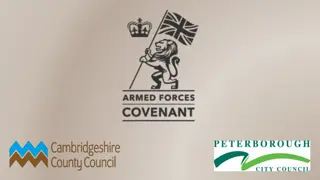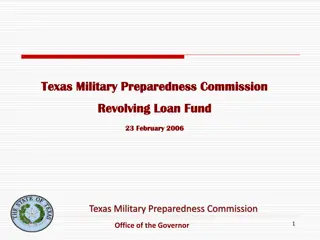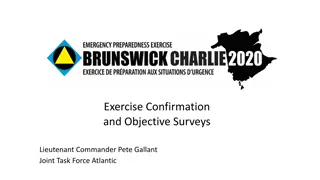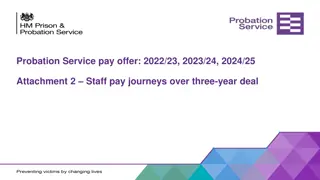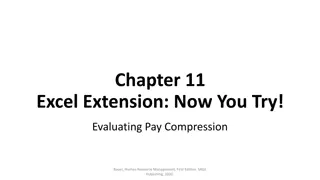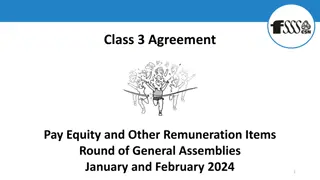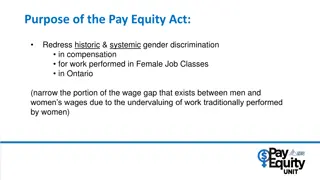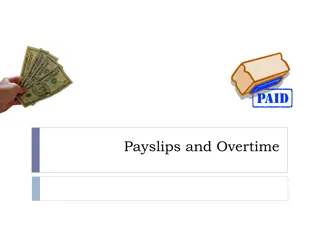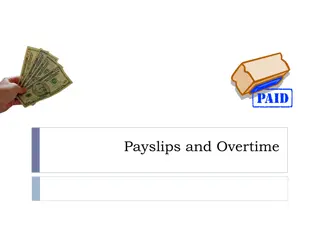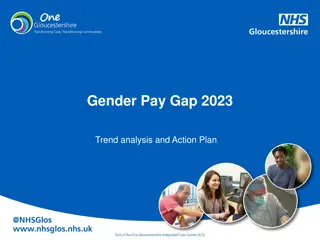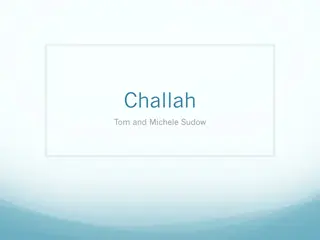How Military Service Can Help Pay for College - Presented by Michele Reid, Lieutenant Colonel, US Army
Michele Reid, a Lieutenant Colonel in the US Army, shares her journey of utilizing military benefits to pay for college, including scholarships, Tuition Assistance, and the Post 9/11 GI Bill. She discusses the eligibility criteria, benefits, and resources available to service members for higher education funding.
Download Presentation

Please find below an Image/Link to download the presentation.
The content on the website is provided AS IS for your information and personal use only. It may not be sold, licensed, or shared on other websites without obtaining consent from the author. Download presentation by click this link. If you encounter any issues during the download, it is possible that the publisher has removed the file from their server.
E N D
Presentation Transcript
How Joining the Military Can How Joining the Military Can Help Pay for College Help Pay for College Presented by Michele Reid Lieutenant Colonel, US Army
Hello Students! Michele Reid, Lieutenant Colonel, U.S. Army Originally from Livonia, Michigan Stationed at Fort Hood, Texas Education: Norwich UniversityNorthfield, Vermont Bachelors of Science in Education & History and Army ROTC -Used school scholarship, loans, and work study to pay for school American Military UniversityCharles Town, West Virginia Masters of Arts in Military History (online program) -Used Tuition Assistance to pay for school Career: US Army officer for 24 years Lived in eight states (including Hawaii) Visited 49 of 50 US States Been to 15 countries Deployed to Bosnia, Iraq and twice to Kuwait Field: logistics & supply chain management Retiring in May 2018 Baylor UniversityWaco, Texas Current student Masters in Business & Administration, or MBA (online program) -Using the GI Bill and Veterans Scholarship
Todays Session: How Military Service can Pay for College -What is a Veteran and how soon do you qualify for benefits? Why Are We Talking About This? -The Post 9/11 GI Bill First: I m not a recruiter, but I love being in the Army and I want to share what you can get out of military service! -The ROTC Scholarship This presentation is intended for you to get an objective look at what is available when you enlist or become an ROTC Cadet. I want to arm you with information about how college might be paid for through military service. -Scenarios using the GI Bill and ROTC Scholarship -Helpful websites for more information Fewer students today know someone who served. Recruiters can be intimidating. Joining the military may not be something you re considering, but everyone should know what is available and where to find the information. -Questions and discussion No one should serve just to get college money choose to serve because you want to, but also use the benefits you earn with service.
The Post 9/11 GI Bill www.benefits.va.gov/gibill/post911_gibill www.vets.gov/gi-bill-comparison-tool -The GI Bill has been around since 1944 -Post 9/11 GI Bill is the most current version -Serve at least 90 days, and your GI Bill benefits start After 36 months of service you earn a full GI Bill: Max Tuition & Fee Reimbursement per Academic Year School Type Public All Tuition & Fees for in-state school Maximum Benefit Payable If You Serve For: Private Up to $21,970.46 per academic year At least 36 months 100% Other benefits for full time students (12 credits per semester) -Housing allowance (varies; $1K-$3500K per month) -Books and supplies stipend ($1K per year) -The Yellow Ribbon Program your school might have additional funds for your education in addition to the GI Bill At least 30 continuous days on active duty and must be discharged due to service- connected disability 100% At least 30 months, but less than 36 months 90% At least 24 months, but less than 30 months 80% The GI Bill CAN pay for all of your education! At least 18 months, but less than 24 months 70% THE CATCH: -The GI Bill pays only during months you are in school -You must be a full-time student to get all benefits - A failing grade won t be paid At least 12 months, but less than 18 months 60% At least 06 months, but less than 12 months 50% At least 90 days, but less than 06 months 40%
GI Bill Path: College and the Military College Grad! GI Bill: Private 1st Class Freshman Specialist Senior Graduate HS Sophomore Junior Private 100% GI Bill Earned! YOU ARE: Go to Basic Training Go to Job Training Move to 1st Base Transition Year Depart Military Apply to College Move About 25 Active Duty Veteran Bachelors Degree Tech Skills State Vet Benefits New Soldiers -Think of Soldiers as entry level employees -Three years of a steady job and pay check -Potential for travel and deployments -Must meet basic requirements to join -New Soldiers develop into leaders and job experts NOTE: I m using Army rank and terms, but this applies to all military forces
GI Bill Scenario At age 22, Jim finished four years in the Marine Corps, where he served as a rifleman. He wants to return home to Texas and study mechanical engineering. He applies to several Texas schools and gets accepted to two: one public and one private. Jim wants to use his GI Bill and any Texas Veterans benefits he can. Public school option: University of Texas Texas Resident: $5,260 per semester @ 12 credits Four years: approximately $42,080 GI Bill: 100% eligible, will pay for all tuition and fees Private school option: Baylor University Baylor costs: $56,628 per school year GI Bill: 100% eligible, GI Bill pays up to $21,970.46 per year to private schools Yellow Ribbon Program: Baylor caps at 300 students and will off-set the remaining tuition and fees 100% eligible, all tuition and fees paid if Jim gets the Yellow Ribbon program Remember: any in-state school is paid 100% for an in-state resident student!!
If This Sounds InterestingDo Some Research Go to www.vets.gov/gi-bill-comparison-tool First: Click Veteran, Post 9/11 GI Bill and 36+ months checked Online classes: click No Next: Type in the name of the College/University you d like to attend and select Look at the Benefit Analysis and review: -Public or Private School? -How much is the housing allowance? -Does the school have the Yellow Ribbon Program? Now, go to your School s website -Does it offer a military scholarship? -Are application fees waived for Veterans? -Talk to the Veterans Advisor at the school Next: -Google Veterans Benefits for your state -Review education benefits your state offers
The Reserve Officer Training Corps (ROTC) Scholarship Reserve Officer Training Corps (ROTC) Scholarship Facts: -A service-provided scholarship for two, three or four years of college -Offered by the Army, Navy and Air Force (Marine Corps is part of the Navy) -Enroll in ROTC classes during college (Army, Air Force Cadet or Navy Midshipman) -ROTC Cadets then sign a commissioning contract and become officers upon graduation -Service as an officer may be on active duty or in the Reserves -You spend the summer between junior and senior year at an 8 week training cycle at Fort Knox Some Scholarship conditions: -You must maintain a 2.5 GPA -You must maintain height & weight and Physical Fitness standards -You owe 8 years of service (combination of active and inactive time) -Bad behavior or leaving school can mean you pay back your scholarship money www.goarmy.com/rotc/scholarships www.nrotc.navy.mil/scholarships www.afrotc.com/scholarships
ROTC Path: College and the Military College Grad! ROTC 1st Lieutenant 2nd Lieutenant Graduate HS Sophomore Freshman Senior Junior Captain Attend Job Training Move to 1st Assignment Transition Year Graduate College Accept Commission Begin Active Duty New Officers YOU ARE: Think of officers as entry-level managers Expected to know Army basics Expected to have leadership skills Must meet basic and additional requirements to join Bachelors degree is required About 26-27 Active Duty Veteran Bachelors Degree Leadership Skills Management Skills Committed for 4 more years (not full time) Veterans Benefits NOTE: I m using Army rank and terms, but this applies to all military forces
The ROTC Scholarship Scenario As a high school junior, Alex applied for acceptance at the University of Colorado and was awarded a four year Army ROTC Scholarship. Alex plans to major in biology and is interested in serving in the US Army as a Medical Services officer for four years of active duty. After that, Alex plans to enroll in medical school to become a doctor. -Four year ROTC scholarship pays 100% tuition -Alex will receive a stipend each month (small paycheck) -Alex will also receive a book stipend for each semester -The University of Colorado awards credits for some ROTC activities Upon graduation, Alex will: -Commission as an officer at the rank of second lieutenant -Attend Entry level officers training for medical service lieutenants -Be assigned to a unit at an army base (world wide options) Links for each services program: www.goarmy.com/rotc/scholarships www.nrotc.navy.mil/scholarships www.afrotc.com/scholarships
Questions and Comments Thanks and Good Luck to You All!
Other Questions/FAQs I served in the Army and got my GI Bill. I don t want to go to school right now. Will I lose it? -No! The GI Bill can be used for up to 15 years after you depart the military. I served in the military and when I applied to school, I got a full scholarship! What do I do with my GI Bill? -You can use it later for graduate school, technical school, or any other certification/training. Most college programs are four years, why is the GI Bill good for only 36 months? -The GI Bill pays you only for months when you are in a full or part time student status. During any month you are not in school (ie, summer) you are not paid. Most undergrad programs are about 36 months of school spread across four years. I want to go in the Navy for four years and then go to tech school and become a certified electrician. Can I use my GI Bill? -Yes. As long as the school is on the approved list by the VA, technical schools, trade schools and other institutions can be paid for with your GI Bill. The school I want to go to is not on the VA list. Why? -Schools not on the list are typically not accredited or have some other issue. If they are not on the VA eligible list, that s usually a bad thing.
Other Benefits by School & State Most states and schools offer additional benefits to those who were living in their state at the time of enlistment or intend to move there following their military service. THESE ARE NOT LOANS! The Yellow Ribbon Program: Agreement between your school and the VA when tuition exceeds the GI Bill -Offered on a first come, first served basis -You must apply for the YR separately Texas: The Hazelwood Act Easiest way to research this is to Google Veterans Education Benefits for your state California: CalVet Program Illinois: Illinois Veterans Grant Program State and school specific programs could be the difference between 100% paid-for tuition and having a bill!!
What is a Veteran? Who Gets the GI BIll? -Anyone who joins the military and completes at least their initial obligation with an honorable discharge -Two, three, four, six year enlistment contracts are available (a four year enlistment is common) -Any job in the military applies (cook, medic, artilleryman, journalist, gunner, mechanic) -Any location and service (a state side location, overseas; Army, Navy, Marine Corps, Air Force, Coast Guard) -A deployment is not necessary (ie, going to combat) -Veterans educational benefits are offered by the federal government through the Veterans Administration (VA)
